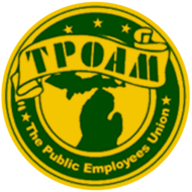PA 54 Memorandum
To: TPOAM Members, POAM Officers, Executive Board Members, Legal Staff, and Business Agents
Fr: Frank A. Guido, General Counsel
Re: Health care costs; coordinating PA 54 and PA 152; Demand to Bargain
This is a reminder that the provisions of PA 54 of 2011 and PA 152 of 2011 MUST BE COORDINATED.
PA 54 allows an Employer to pass on to employees the full cost of health care cost increases which arise after a collective bargaining agreement expires. PA 152 allows the Employer to implement either the “hard cap” limits or an “80/20” premium cost-sharing. An Employer CANNOT pass each cost separately to employees.
Example: monthly premium of $600, paid for by an employer during the term of the CBA. The CBA expires and adjusted premium rates come into effect reflecting a 15% increase—the new rate being, $690. Under Act 54 the employer can pass the full amount of the difference on to the employees, which is $90. At the point when Act 152 can be implemented by an employer (when the medical benefits plan coverage year begins—which is after the open period for enrollment—BC/BS refers to this as their contract renewal year—hence, it is not necessarily January 1st of each year), the amount that can be charged, for example, if the employer implements the 80/20 (section 4 of the Act) provision, is 20% of the $690 amount—which is $138. THE EMPLOYER CANNOT CHARGE $90 PLUS $138. The employer can only charge $90 (which is mandated by PA 54 as an amendment to PERA) plus the DIFFERENCE between $138 and $90, which is $48, for a total charge of $138, which, as you have noted, is the same amount as the PA 152 charge. IF AN EMPLOYER IS TELLING YOU THE AMOUNT IS $90 PLUS $138 ($228), THEY ARE INCORRECT. If the employer could charge both amounts, the employer’s premium share in relation to the new rate of $690, would only be $462, which is @67% of the total premium cost, thereby passing on to an employee the remaining 33%—THAT IS INCORRECT.
Though the likelihood of success is predicated on the economics of the times, we still have the right to bargain under PERA the amount (%) we have to “premium share”, if the employer uses the 80/20 format. The law says the employer cannot pay more than 80% of the total annual costs—it does not conversely say that any particular group of employees has to pay 20%. In essence, pursuant to PERA, we have the right to negotiate a % that is less than 20% (which means, of course, that the employer would have to obtain a higher % of contribution from other employees to stay at or below the 80% maximum).
Also note, we have the right to negotiate a change in plan coverage levels to lessen the blow of the 80/20 format or hard cap.
Make sure you demand bargaining as to the % and plan coverage levels if that is the tactical approach which works best for your group. By making the demand to bargain, we will at least have a potential ULP if the Employer unilaterally implements the rates and refuses to bargain the % or coverage level.

Leave a Reply